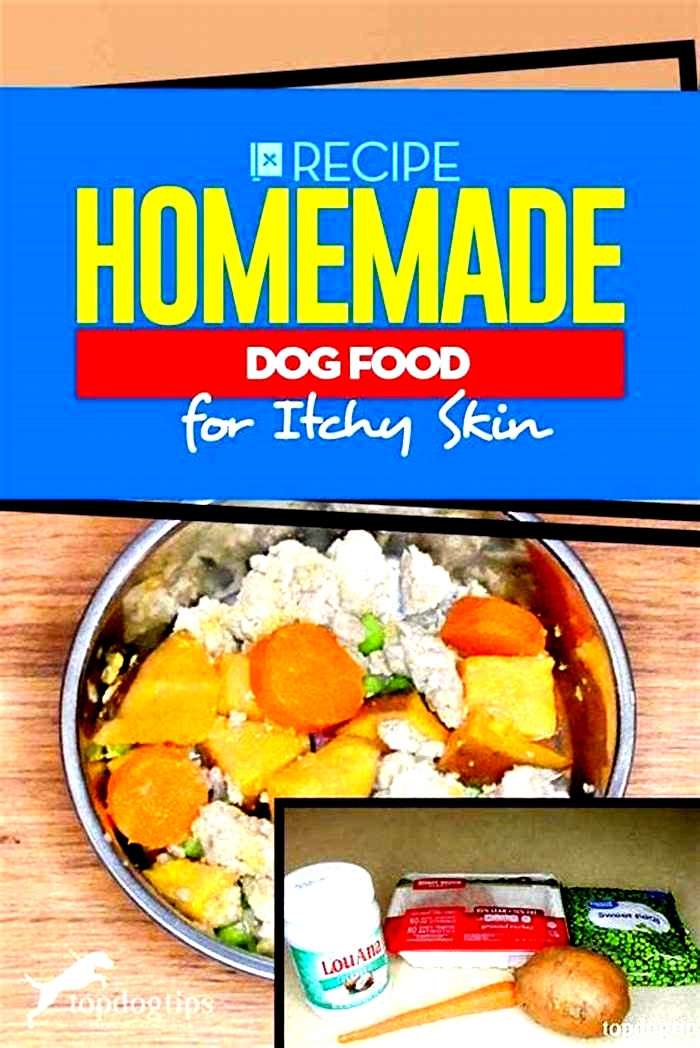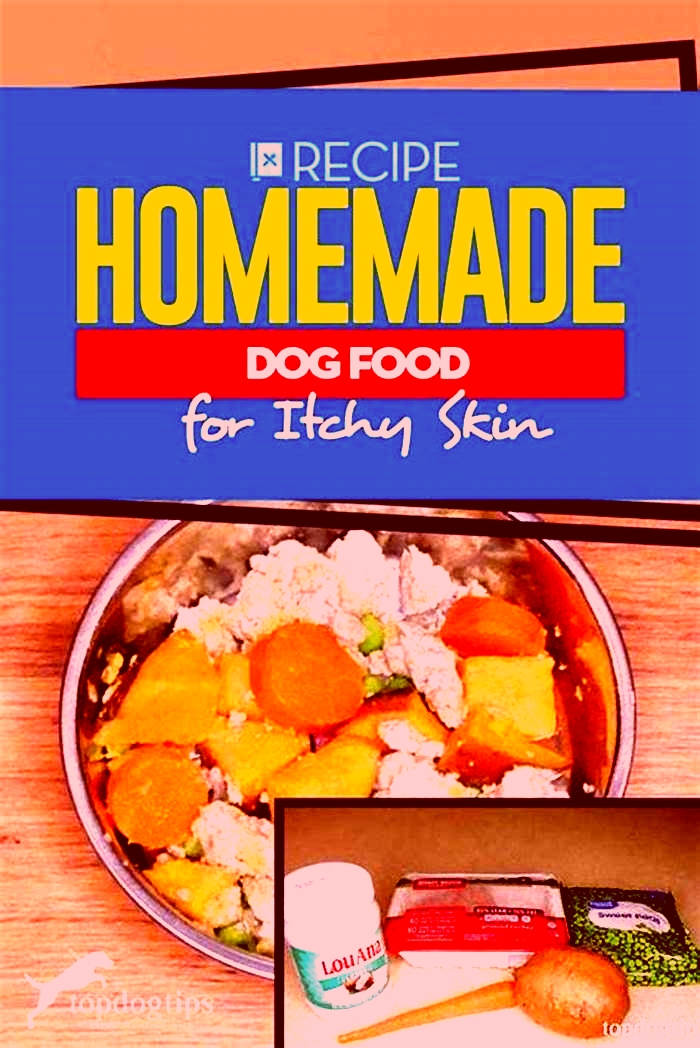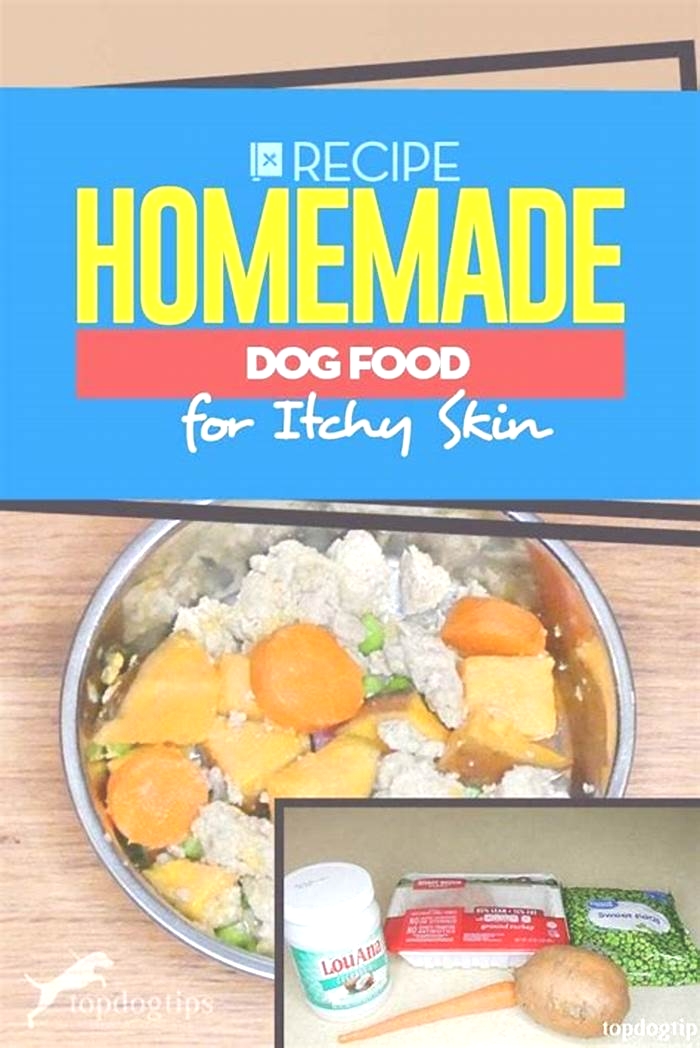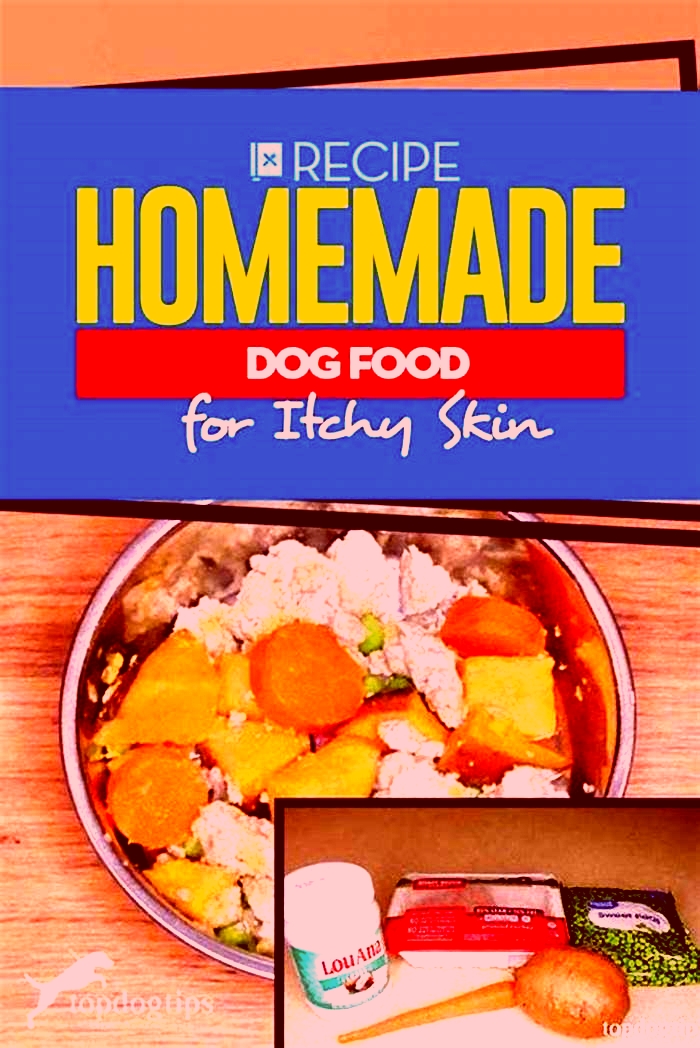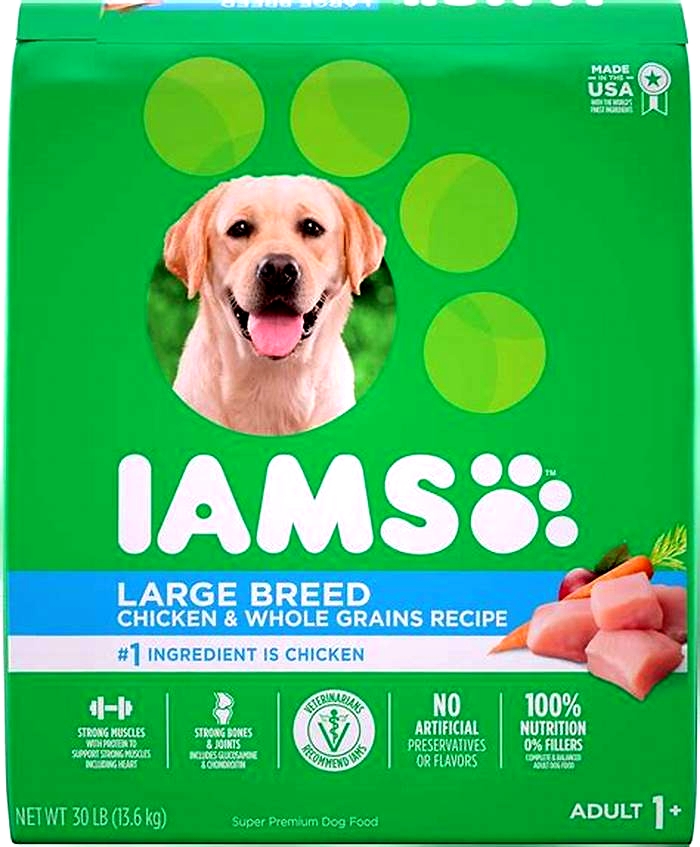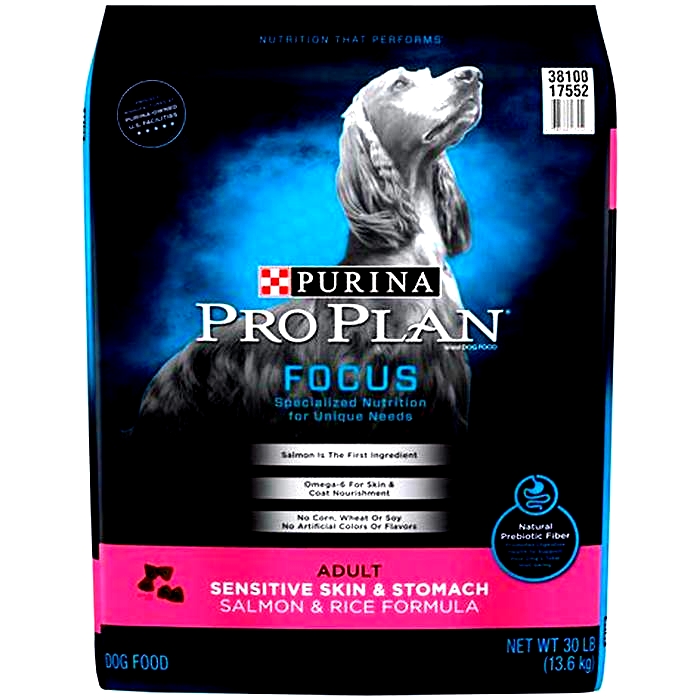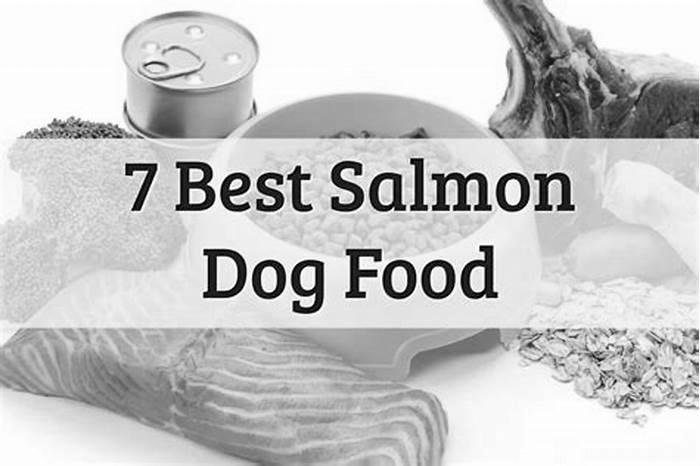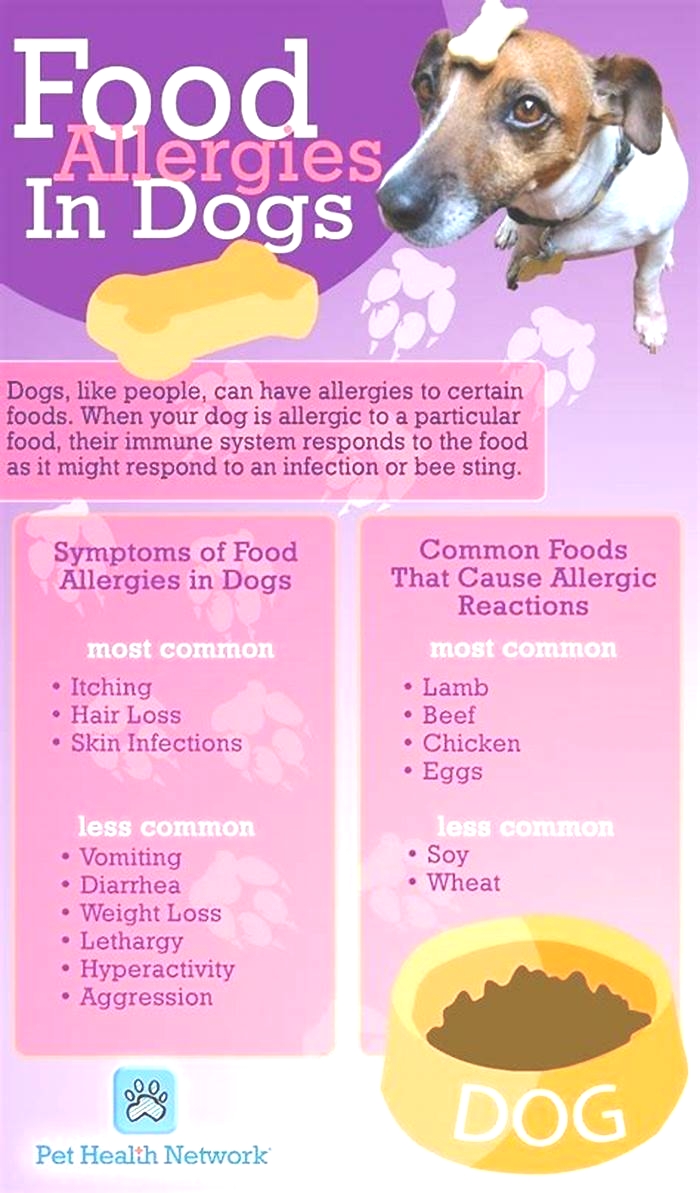homemade dog treats for itchy skin

45 Simple Remedies for Dry and Itchy Skin in Dogs
Have you noted red bumpsor rash on your dogs coat? Is your dog insistently scratching or biting on itsfur creating hairless patches? If so, then your dog could be suffering fromallergies, parasites, yeast or bacterial infections.
Generally, there areseveral causes of itchy and dry skin in dogs, which makes diagnosis a bitdaunting, especially if you are not a qualified vet.
If dry and itchy skin is making your canine friend uncomfortable, here is all you need to know about potential causes, symptoms, and the best remedies/treatment options.
Causes of Dry andItchy Skin in Dogs
- Flea, Tick, Mite & Bug Bites: Bites from different pests and parasites (such as fleas, mites, ticks, bugs, spiders, bees, flies, and mosquitoes) can cause itchiness and swelling in dogs. There are also Dermodex mites and sarcoptic mange mites that live inside your dogs hair follicle and burrow into the skin causing severe itching. Note that some fleas and mites are tiny and difficult to spot, so the fact that you cannot see them doesnt imply that they are not there.
- Allergies: Skin allergy occurs when your dogs immune system overreacts to a foreign protein (or allergen). An allergy may also be caused by food (food allergy), fleas, or substances in a dogs environment such as pollen, mold, or dust. You can read our comprehensive post on skin allergies here: Best Foods for Dogs with Allergies: Everything You Need To Know
- Insufficient fatty acids in a dogs diet: Dogs without enough fatty acids in their diet may suffer from dry and itchy skin as there is nothing to moisturize the skin.
- Stress: This is a rare cause of itching but experts believe that some dogs might excessively lick and scratch their skin to cope with stress.
- Bathing schedule: Dry skin may also be caused by bathing your dog frequently as it may wash off natural oils in your dogs coat. Not bathing your dog too often may also result in skin buildup and ultimately cause itching.
- Climate: Cold and dry winter air may cause your dogs skin to dry out. Dogs living in areas with low humidity tend to have dry skins year-round.
- Endocrine problems: If any of your dogs endocrine organs fail to secrete enough amounts of hormones or secrets too much, he may suffer from a wide range of skin diseases, itchiness, hair loss, and poor skin quality.
Common Symptoms ofDry and Itchy Skin in Dogs
The following are the most common symptoms that you arelikely to see in a dog with itchy skin
- Constant rubbing of the skin on furniture or people
- Soreness of skin (caused by scratching)
Best Remedies for Dryand Itchy Skin in Dogs
Combating itchy skin in your dog shouldnt be a complicated or costly affair as there tons of remedies that you can leverage. Here are the top 45 easiest and most effective remedies that you can use to help relieve your dog from the problem.
1. Coconut Oil
Besides reducing allergic reactions, coconut oil can help improve dog skin problems, including dry and itching skin due to itsantibacterial and antiviral properties. Consequently, its a great addition to an allergic dogs diet.
Nevertheless, you dont want to use too much of the ingredientsdue to the potentially adverse effects.
The recommended amount of coconut to include on your caninefriends diet is about a quarter teaspoonful per 10 pounds of body weight.
Too much coconut oil can cause diarrhea since it is high in fats and may not be a good option for overweight dogs.
2. Vitamin E
Vitamin E moisturizes the skin and promotes the growth of new skin and hair in the affected areas. It also promotes fast injury healing and enhances tissue growth and health. Apply a small amount of the vitamin on your dogs skin and massage gently. You can also give it orally if your dog has a longer coat. Remember to give your dog the right dosage depending on his age and size.
3. Neem Oil
Commonly used for cooking, Neem tree oil is known to reduce inflammation and cure a wide range of skin diseases in dogs. Add a few drops of the oil plus a suitable dog shampoo in water and bathe your dog with the mixture.
5. Thyme
Thyme has flavonoids which are known to have potent antioxidant, anti-inflammatory, antifungal, and antiseptic properties. Apply where there are skin infections like your dogs toes. If your dog is licking or chewing his paws, the best natural remedy that you need is thyme solution.
6. Chamomile Tea
Herbal Chamomile Tea provides immediate calming and soothing effect when applied on your dogs itchy skin. It also kills yeast and bacteria. Gently pressed cooled Chamomile Teabag on the affected area. If the area is large, you can use a spray.
7. Omega 3 Supplements
Omega 3 fatty acids provide a wide range of health benefits to dogs, including enhancing healthy skin and coat. The best Omega 3 supplements for relieving itching and inflamed skin in dogs are those that contain docosahexaenoic acid (DHA) and eicosapentaenoic acid (EPA).
8. Give your Dog a Wholesome Diet
Giving your dog a well-balanced diet will enable him to fight off and heal from skin allergies and other external stressors. In particular, if your dog is allergic to certain food ingredients, replace them with something else. For instance, if your dog is allergic to grains, you can give him a grain-free diet. You can learn more here: Best Foods for Dogs with Allergies: Everything You Need To Know
9. Oatmeal Bath
An oatmeal bath will nourish and moisturize your dogs skin. To create an Oatmeal bath, simply blend oats and add it to a warm bath. Allow your dog to soak in the mixture for about 10 to 15 minutes. Alternatively, simply buy oatmeal dog shampoos and conditions.
Related: How to Make Homemade Dog Treats with Rolled Oats
10.Baking Soda
This is another readily-available remedy thats known to instantly soothe itchy skin in dogs. You can apply directly to the affected areas or add one heaping cup of the powder to your dogs bath, especially if your dog is itching all over.
11. Epsom Salt
Epsom salt does not only soothe your dogs itchy skin but also reduces swelling caused by inflammation. It is particularly recommended for dogs that are sensitive to shampoos. When combined with other home remedies, it can increase the recovery time of your poochs itchy skin.
Pro Tip: Avoidbathing your dog in Epsom salt if he has open wounds. Additionally, ensure that your dog doesntlick or ingest the salt.
12. Yogurt
Yogurt contains powerful probiotics that can kill bacteria and yeast in your dogs skin. Adding yogurt to your dogs diet will not only balance his digestive system but also get rid of itchy skin and yeast infections.
13. Chickweed
Chickweed (Stellaria media)has potent anti-inflammatory, antifungal, and antiseptic properties, making it a good remedy for hot spots, sores, boils, and skin itches in dogs. It can also be used to treat rashes, bug bites, wounds, and eczema in dogs. When applied topically, chickweed gel produces a cooling effect that makes it great for use in hot weather.
14. Fish Oil
Fish oil contains omega-3 fats that reduce inflammation. It is,therefore, a useful component for relieving some allergies.
Omega-3 fats can also help in the treatment ofseborrhea, a skin disease that causes itching and occurs as a result of excessive secretion of sebum by the sebaceous glands.
You can also complement itching medication with fish oil. Note that too much fish oil can cause adverse side effects in dogs, so consider moderating the amount you feed to your dog.
15. Brushing
You can also get rid of itchiness buy simply brushing your dog. Brushing removes dead hair and prevents the accumulation of dead skin cells that can cause inflammations. It also eliminates toxins by increasing blood flow to your dogs skin. Brush your dog when his coat is dry to ensure that there is no hair breakage.
16. Calendula
Like Chickweed, Calendula boasts powerful anti-inflammatory and anti-fungal properties, so applying it on your dogs skin will help relieve itchiness and inflammation. It will also improve your dogs immune system, making it a good remedy for allergy in dogs as well.
17. Homemade anti-itch Sprays
Another great way to stop your dog from itching or chewing his paws is to make an anti-itch spray. You can easily make one using apple cider vinegar, lemon, and water. Alternatively, you can buy commercial anti-itch sprays since some of them have better ingredients.
18. Evening Primrose Oil
Primrose (Oenothera biennis) is a popular natural remedy for a wide range of conditions. It is particularly famed for its anti-inflammatory and anti-itch properties. Apply on the affected areas topically or simply give it to your dog orally. Add just a few drops in your dogs food if you opt to give it orally. Remember to consult your vet first for more professional advice on the best dosage for your dog.
19. Eucalyptus Conditioners
As a powerful skin soother and moisturizer, Eucalyptus will calm your dogs itchy skin and promote the growth of healthy skin and hair. You can also use Eucalyptus to repel and kill fleas.
20. Witch Hazel
Witch Hazel is rich in tannins, which is known to help soothe itchy skin, reduce swelling, fight bacteria, and repair broken skin. Soak a clean cloth or cotton ball in a witch hazel solution and rub it on the affected area.
21. Aloe Vera
Aloe Vera is known to be a powerful healing agent and will soothe itchiness and redness in your dog. If you dont have Aloe Vera in your home garden, you can buy Aloe solutions and gels from local drug stores or Amazon. Remember to buy a variant that doesnt contain alcoholotherwise, you may burn your dogs skin and worsen his itchy skin condition.
22.Aspirin Mix
Aspirin can also help soothe inflammation and sores that your dog may experience from scratching his itchy skin. Aspirin works best when applied topically. It shouldnt be ingested by your dog. Learn more here: Can I Give My Dog Baby Aspirin?
23.Yellow Dock
Traditionally, the roots and leaves of this fast-growing flowering North American plant were used as blood purifiers. Today, it is also used as a great anti-itch for dogs as well as treating dermatitis in dogs.
Add 1 tablespoon of the herb to 2 cups of boiling water then allow the mixture to cool for a few minutes. Strain out solid particles and apply on your dog after a bath. Dont rinse it out.
24. Apple Cider Vinegar
A home remedy cure-all, Apple Cider Vinegar will soothe your dogs skin and fight bacteria and yeast that may be responsible for itching. Dont use Vinegar on open skin or raw skin as it can be extremely painful for your dog and worsen his symptoms.
25. CBD Oil
CBD oil has many amazing properties, including anti-inflammatory and antifungal properties. It can, therefore, reduce symptoms of itchiness and irritation in dogs. It can also help reduce anxiety in your dog.
26. Natural Skin Tonic
Lemon-based natural skin tonic is a great flea repellant. It will also act as a potent skin toner to soothe and balance back the dogs irritated skin.
27. Quercetin Supplements
Quercetin is well known for its ability for relieving several allergicreactions in dogs. The bioflavonoid is naturally present in vegetables andfruits.
However, not all Quercetin-containing foods are safe for dogs,and you may have difficulties distinguishing between safe and unsafe options.Hence, quercetin supplements become safer alternatives.
Quercetin inhibits the release of histamine from the mast cellsas well as inhibiting other enzymes that contribute to inflammation.
The recommended dosage for quercetin ranges from about 125mg and 375 mg, depending on the dogs weight.
28. Control Heat and moisture
Your dogs environment has a huge impact on his skin health. Keep your home or your dogs kennel cooled and use a humidifier during dry seasons. Avoid using high heat blow drier when grooming your dog as it might wreak havoc on your dogs skin. Additionally, always ensure that your dog has access to clean and fresh water, especially if you like feeding him dry kibble. Check this post for the best waterers to buy for your dog: 42 Best feeders and water fountains for dogs
29. Natural Flea Powder
Fleas cancause severe itching in dogs. So, if you identify fleas as the main cause ofitchiness in your dog, a natural flea powder will help you repel and eliminatethem, even if the infestation is severe.
30. Salt Therapy
This entailsgiving your dog 4 different waterers3 with high-quality salt and the 4thone with distilled waterand allowing your dog to choose one. Based on theelectrolytes that your dog lacks, he will go for what he needs.
31. Olive Oil
Olive oil isloaded with antioxidants as well as vitamins E and K that will sooth andreplenishes your dogs skin. Add 1 tablespoon of olive oil in your dogs food2-3 times a week to relieve him of itching and help his fur to grow thick andshiny.
32. Herbal Shampoos
Your dogsskin may also because you frequently use harsh chemical-based shampoos. If yoususpect that this is the case, switch to herbal shampoos. You can also add afew drops of essential oils to provide more moisturizing effects.
33. Hydrolyzed Diets
Feed your dog hydrolyzed diet for a few weeks then introduce a new protein source to tests if he can react with it. If your dog is overly sensitive, you may need to feed him a hydrolyzed diet for longer, especially if you realize that it is what gives him relief.
34. Glucocorticoids
Glucocorticoidsare simply anti-inflammatory steroids and areconsidered to be the most effective drugs for itching in dogs. However, theycan cause a wide range of side effects, including excess urination, thirst, andhunger. They may also suppress your dogs adrenal glands and increase the riskof secondary tract infection and even diabetes. So, before administering thesedrugs to your dog, strive to consult with your vet widely. Topical sprays thatcontain Glucocorticoidsmay also provide abetter alternative to pills.
35. Benadryl
Benadryl is effective in treating allergy in both humans and dogs. So, if your dogs skin itchiness is as a result of an allergy, the medication will help. However, some dogs tend to be allergic to Benadryl or may have health conditions that make it unsafe to use. So, consult with your vet first before trying the medication.
36.Digestive Enzymes
Digestive enzymes help treat a range of conditions, includingitching. Processing and cooking destroy most of the proteins found naturally inraw food, so it becomes necessary to purchase digestive enzyme supplements foryour dog.
The enzymes aid in the digestion and assimilation of essential nutrients that help prevent allergic reactions. Bromelain and Papain, for instance, are known to enhance the absorption of quercetin. They also reduce inflammation and pain dogs mucous membranes as well as in other parts of the body.
Sprinkle the powder directly on your canine companions food butafter consulting a vet on the right amount to feed to your dog daily.
37. Modifiedcyclosporine & Oclacitinib
These are other OTC drugs that can be used tomanage skin itching in dogs. Your vet should recommend the right dosage foryour dog.
37. Probiotics
Canine probiotics are increasingly being used to treat itching problems and allergies in dogs. The beneficial bacteria help normalize your dogs overactive immune system. Let your vet help you identify the best probiotics for your dog. We have also highlighted the options in this post:12 Best Probiotic for Dogs with Allergies
38. Rosin-weed
Dilute rosin-weed or grindelia tincture is also effective for treating itching in dogs. Dilute the tincture with water (1:10) and apply the mixture on the affected areas using a cotton ball or simply spray the affected area. Apply frequently until you see change.
39. Colostrum
Colostrums effectiveness in treating a wide range of maladies in dogs is supported by over 7000 peer-reviewed studies. In particular, it is famed for treating allergies and auto-immune issues. It is highly recommended for chronic itchy skin conditions in dogs. Here is the best option: Canine Colostrum for Dogs
40. Exercise
Exercise is a good way to let your dog forget about his itchy skinproblem. When your dog is playing or romping about, his mind is distracted awayfrom his itchy skin. So, spare some time to go out on walks and play out more.
41. Get Rid of Plastic Bowls
Hot spots around the face are believed to be caused by plastic food bowls. Why? Because plastic tends to develop tiny cracks that harbor bacteria, causing allergic reactions in sensitive dogs. If your dog experiences itchy skin or has hot spots around the face, consider replacing his plastic bowl with stainless and ceramic options. Check the best options here: 22 Best Slow Feeder Dog Bowls for Large and Small Breeds
42. Listerine+Baby Oil+ Water
Put themixture in a spray bottle and massage a small amount on the affected areas afew times a day. Consult your vet first for the best practices for using thisremedy.
43.Yucca
Yucca is a herbal plant commonly found in the American nationsand whose extract is used extensively in pet foods.
Yucca is famed as one the most effective naturalanti-inflammatories, and indeed, dog owners cant regret incorporating it intheir pets dogs.
Yucca contains thesteroidal saponinswhich are powerful anti-inflammatory agents that aid in suppressing itching in dogs. It comes in the form of liquid formula and capsules.
You can buy Yucca extract from local herbal stores or Amazon. Here is a good option: Yucca Root Powder by Starwest Botanicals
44. Human Anti-Histamine
If you suspect that the itchiness is caused by seasonal pollen allergens (prevalent between May and September), then human histamines can help. Priton and Zirtec are cheap options that work well in dogs. Consult your vet to help you figure out the right dosage for your dog. If your dog doesnt show any noticeable effect within a few days, you can drop it.
45. Consult Your Vet
All theabove remedies can help you get rid of itchiness in your dog, but if yourpoochs condition worsens to an extent that it impacts his daily activities orif it results into severe chewing that causes sore or broken skin, then youneed to schedule a visit to a local vet immediately.
Bottom-line
In most cases, itching and dry skin in dogs is considered to be a minor issue and applying the above-highlighted remedies should give your dog significant relief. However, if the itchiness persists after trying the remedies, you need to consult a vet as it can be as a result of other health problems.
While most of the remedies are safe for most dogs, always consult your vet to help you figure out the right dosage (or direction of use) to prevent adverse side effects. Remember, proper diagnosis is critical to providing the most effective treatment for skin issues in dogs.
As an Amazon Associate, we may receive a small commission from qualifying purchases but at no extra cost to you.Learn more. Amazon and the Amazon logo are trademarks of Amazon.com, Inc, or its affiliates.

